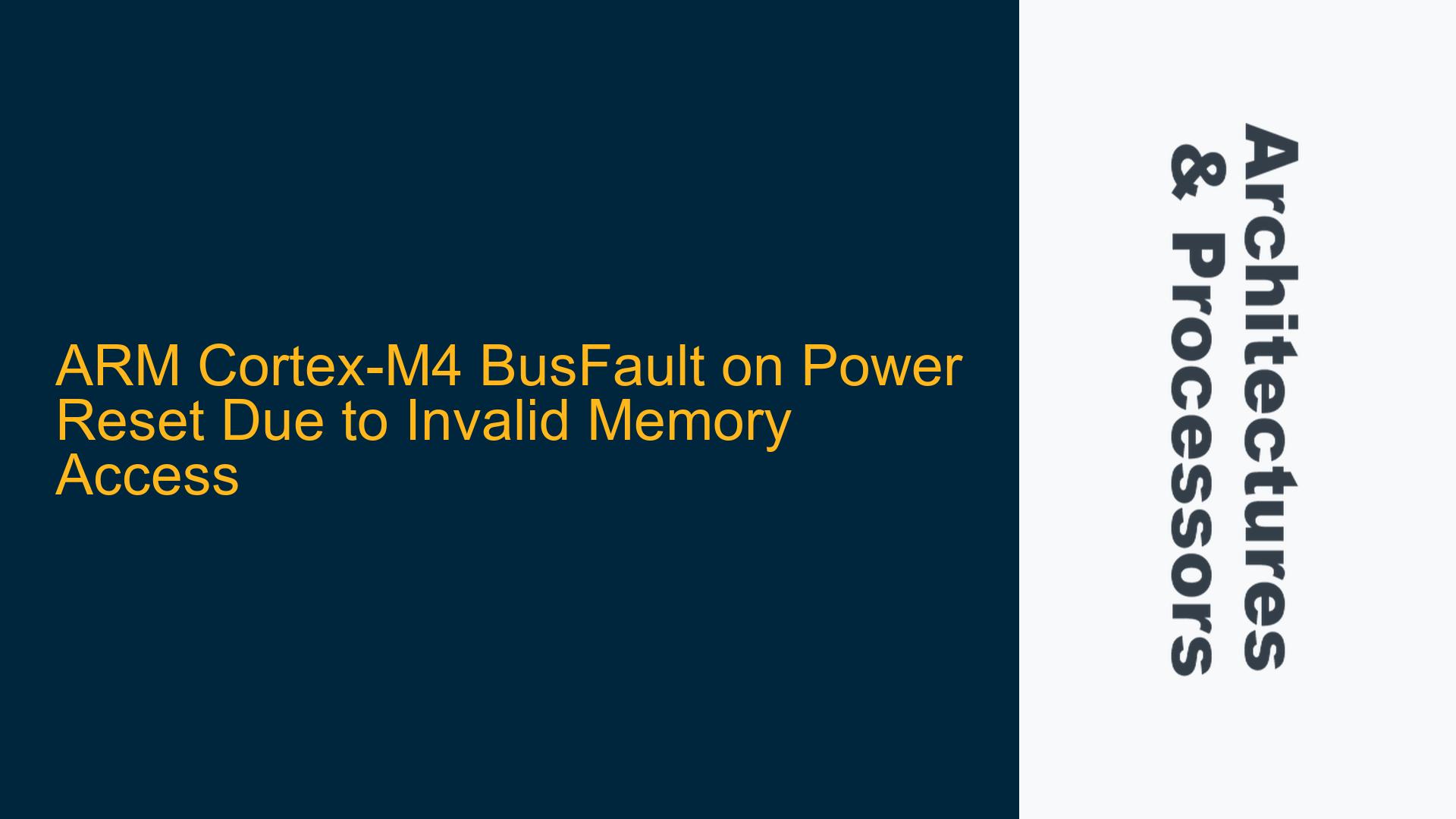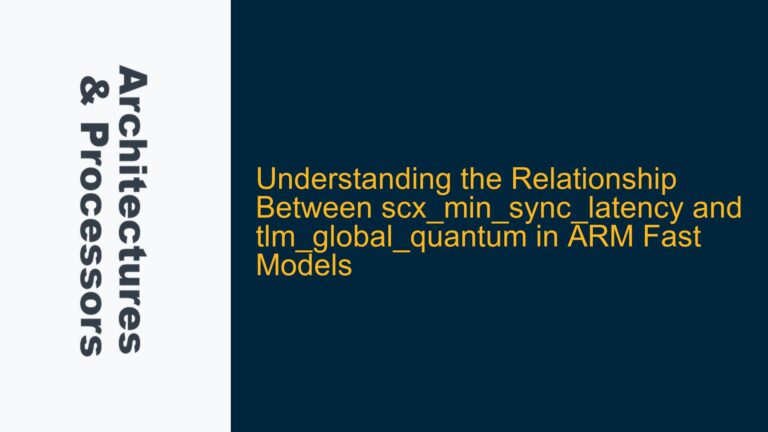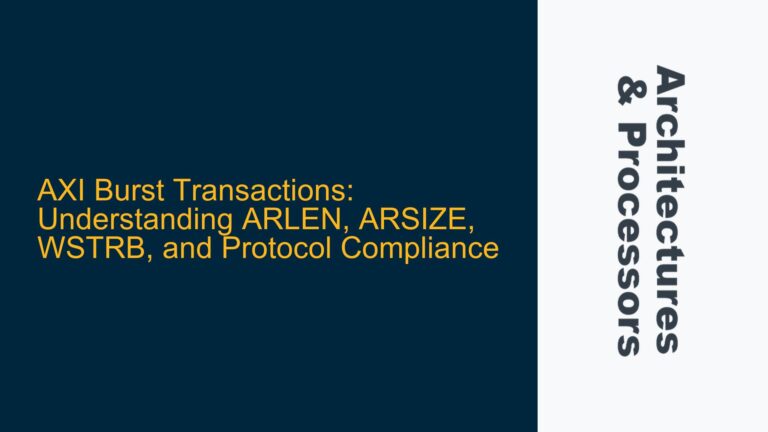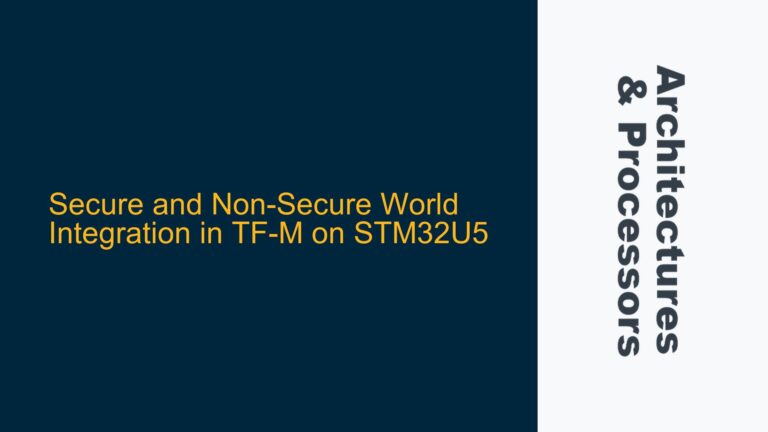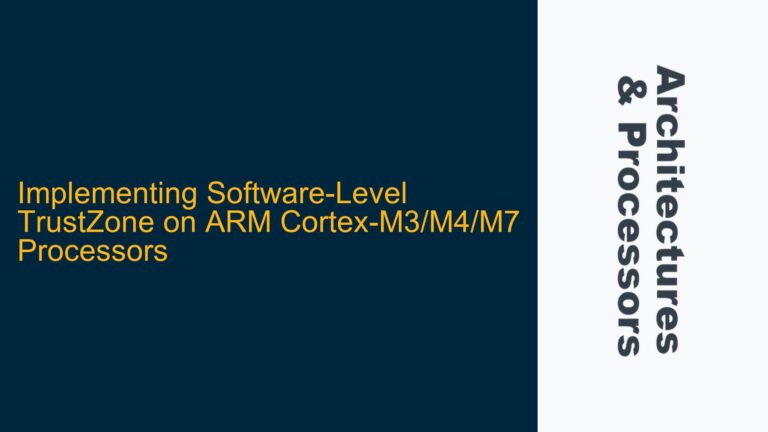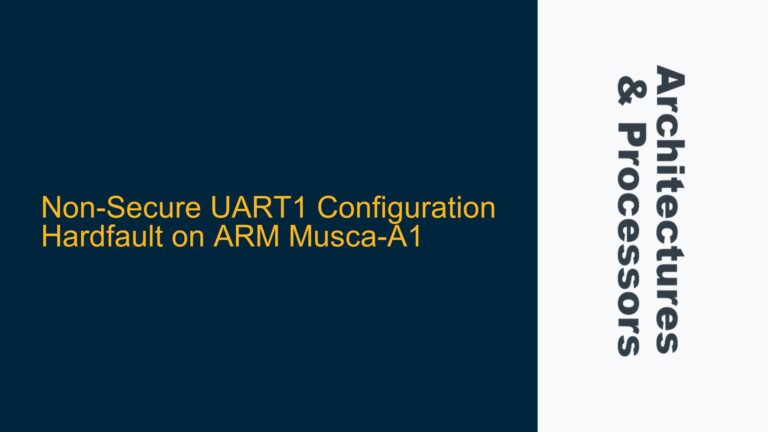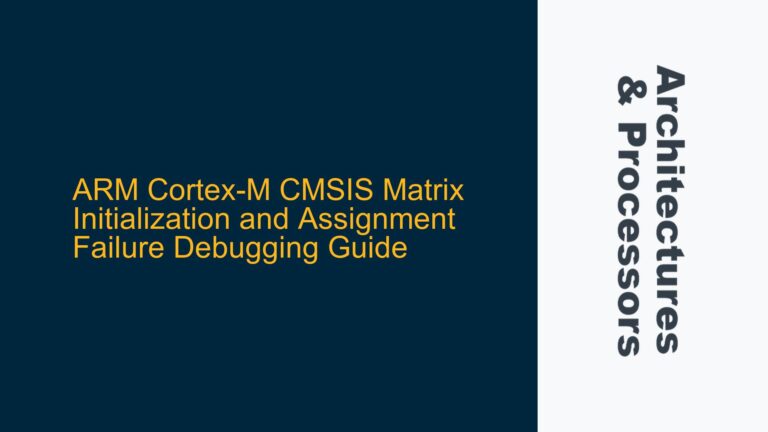BusFault Triggered by Invalid Pointer Dereference During System Initialization
The core issue revolves around a BusFault occurring during system power-up, specifically when dereferencing a pointer (*pp_data) in the function uarte_get_async_data. The fault manifests as an access to an invalid memory address (0x0601235d), which is not a valid memory location for the system. This fault is intermittent and does not occur when debugging the system, making it challenging to diagnose. The BusFault is characterized by the IMPRECISERR bit being set in the BusFault Status Register (BFSR), indicating an imprecise bus error. After disabling caching, the fault becomes precise (PRECISERR), and the BusFault Address Register (BFAR) confirms the invalid address (0x0601235d).
The root cause appears to be an uninitialized or corrupted pointer (*pp_data) that is dereferenced before it is properly assigned a valid memory address. This issue is exacerbated by the timing of system initialization, where memory or peripheral configurations might not be fully stable during power-up. The intermittent nature of the fault suggests a race condition or timing dependency during system startup, which is masked when a debugger is attached due to additional delays introduced by the debugging process.
Memory Initialization Race Conditions and Uninitialized Pointers
The primary cause of the BusFault is the dereferencing of an uninitialized or corrupted pointer (*pp_data). This pointer is expected to point to a valid uarte_rx_buffer_t structure, but during power-up, it holds an invalid address (0x0601235d). This can occur due to several reasons:
-
Uninitialized Global Variables: If
*pp_datais a global or static variable, it might not be initialized to a valid memory location before being accessed. This is particularly common in systems where initialization routines are not executed in the correct order or are delayed. -
Race Conditions During Initialization: The system might be accessing
*pp_databefore the UARTE peripheral or its associated memory buffers are fully initialized. This can happen if the initialization sequence is not properly synchronized or if there are dependencies between different initialization routines. -
Memory Corruption: The pointer
*pp_datamight be corrupted by another part of the system, such as a DMA transfer or an interrupt service routine (ISR), before it is accessed. This is less likely but possible if there are overlapping memory regions or incorrect memory protections. -
Power-On Timing Issues: During power-up, the system might experience transient states where memory or peripherals are not fully stable. If
*pp_datais accessed during this period, it might hold an invalid address. -
Debugger Masking the Issue: When a debugger is attached, the additional delays introduced by the debugging process might allow the system to stabilize before
*pp_datais accessed, masking the fault.
Debugging and Resolving BusFaults Using DWT and Memory Barriers
To diagnose and resolve the BusFault, the following steps can be taken:
-
Enable Precise BusFaults: Disable caching by setting the
DISDEFWBUFbit in the Auxiliary Control Register (ACTLR). This ensures that the BusFault is precise, allowing the BFAR to capture the exact address causing the fault. This step has already been performed, confirming that the fault occurs at address0x0601235d. -
Use Data Watchpoint and Trace (DWT) Unit: Configure the DWT to monitor accesses to the
*pp_datavariable. The DWT can be set up to trigger a DebugMon exception when a specific memory address is accessed. This can help identify when and where the pointer is being corrupted. However, note that the DWT might not halt the CPU when the debugger is not connected, so additional debugging techniques might be required. -
Implement DebugMon Handler: Configure the DebugMon handler to capture the state of the system when the DWT triggers. This can be done by setting the
MON_ENandTRCENAbits in the Debug Exception and Monitor Control Register (DEMCR). The DebugMon handler can then log the system state or enter an infinite loop to allow for debugging. -
Check Initialization Sequence: Review the system initialization sequence to ensure that all peripherals and memory buffers are properly initialized before they are accessed. This includes verifying that the UARTE peripheral and its associated buffers are fully configured before
uarte_get_async_datais called. -
Add Memory Barriers: Insert memory barriers (
__DSB,__ISB) to ensure that memory accesses are properly synchronized. This can prevent race conditions where a pointer is accessed before it is fully initialized. -
Validate Pointer Before Dereferencing: Before dereferencing
*pp_data, validate that it points to a valid memory location. This can be done by checking if the address falls within a valid memory range or by using a known pattern to detect uninitialized pointers. -
Use GPIO for Debugging: If the DWT is not sufficient, use GPIO pins to output debug information. For example, toggle a GPIO pin before and after accessing
*pp_datato capture the timing of the access. This can help identify if the fault occurs during a specific phase of system initialization. -
Review Memory Map and Linker Script: Ensure that the memory map and linker script are correctly configured to avoid overlapping memory regions or incorrect memory protections. This can prevent memory corruption that might lead to invalid pointers.
-
Test with Different Power-Up Sequences: Experiment with different power-up sequences to identify if the fault is related to timing or initialization order. This can help isolate the root cause of the issue.
-
Enable HardFault Handler: If the BusFault cannot be resolved, enable the HardFault handler to capture additional information about the fault. This can include the stack frame, register values, and other system state information that can aid in debugging.
By following these steps, the root cause of the BusFault can be identified and resolved, ensuring reliable system operation during power-up. The key is to carefully synchronize system initialization, validate memory accesses, and use debugging tools like the DWT and DebugMon handler to capture the system state when the fault occurs.
